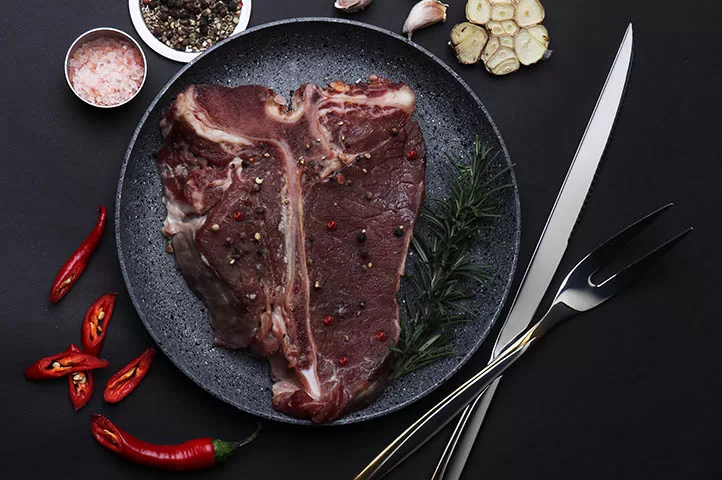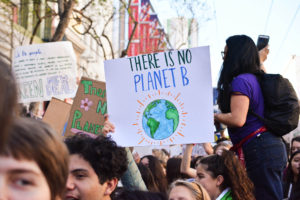By David Steele, Ph.D., President, Earthsave Canada and Renaud Gignac, LL.B., M.Sc., economist and spokesperson, Coalition for a Sustainable Food Transition
This article also appeared in print in the National Post.
The situation is dire. Research shows that our impact on the planetary biosphere is enormously damaging. And it is mostly due to what we put on our plates. The good news is we have the power to change that.
While we obtain, globally, only about 18% of our calories from animal products, 78% of the world’s agricultural land is used to raise and feed farmed animals. That’s half of the habitable land on the planet used to provide only a small sliver of the food we eat. And the impact on biodiversity is huge.
A recent article published by the World Economic Forum summarizes it well. “As agriculture is threatening wildlife, it’s replacing it with livestock.”
The bottom line is shocking.
An enormous fraction of this planet’s resources has been appropriated by us at extreme cost to the rest of the life on this planet. And, tragically, it’s getting worse. Indeed, a seminal study published in 2018 powerfully showed the extent to which we have reshaped the biosphere already:
96% of the mammalian biomass on Earth is now composed of humans and farmed animals; 70% of avian biomass is farmed birds.
An earlier analysis by the University of Manitoba’s Vaclav Smil showed essentially the same thing.
According to the Intergovernmental Science-Policy Platform on Biodiversity and Ecosystem Services or IPBES (the biodiversity equivalent of the IPCC), we’re clearing land at an accelerating rate – mainly to feed livestock.
As Oxford climate expert Marco Springmann has shown, it is mathematically impossible to meet our global carbon budget if current trends in meat and dairy consumption continue.
What can we do about it?
The IPCC, the UNEP and the IPBES have all asserted that we must move rapidly towards diets centered much more on plant-based foods. And, if we do so, the benefits will be enormous. Because eating plants directly requires far less land than eating animals, we could return vast tracts of land to the wild, while dramatically increasing our ability to feed the world.
The benefits for biodiversity would be extraordinary. As a 2020 study published in the prestigious scientific journal Nature quantifies, re-wilding just 15% of the land currently used for agriculture could prevent 60% of the extinctions over the next several decades. Were we to restore 30% of the land to the wild, fully 70% of at-risk species could be saved.
And, as a very important bonus, we’d also be creating the conditions to sequester some 30% of the carbon dioxide accumulated in the atmosphere since the start of the industrial revolution.
There is hope
There is real reason for optimism. We can get off the destructive track we’ve been on by collectively changing the way we eat. Why not check out the multitude of plant-based recipes available online? And make sure to let your political representatives know of the need to quickly address this issue. Cultural traditions are strong, especially when it comes to food; but history has repeatedly shown that human societies are capable of stepping up to new challenges and changing long-lasting practices for the common good. We can and must make a difference.

About Renaud Gignac
Renaud is a climate policy expert with a background as an economist and a lawyer. He held various positions at the Quebec Ministry of Environment and Climate Change, the Canadian Climate Institute, in the private and nonprofit sectors, and in academia. He is a co-founder of the Coalition for a Sustainable Food Transition.








